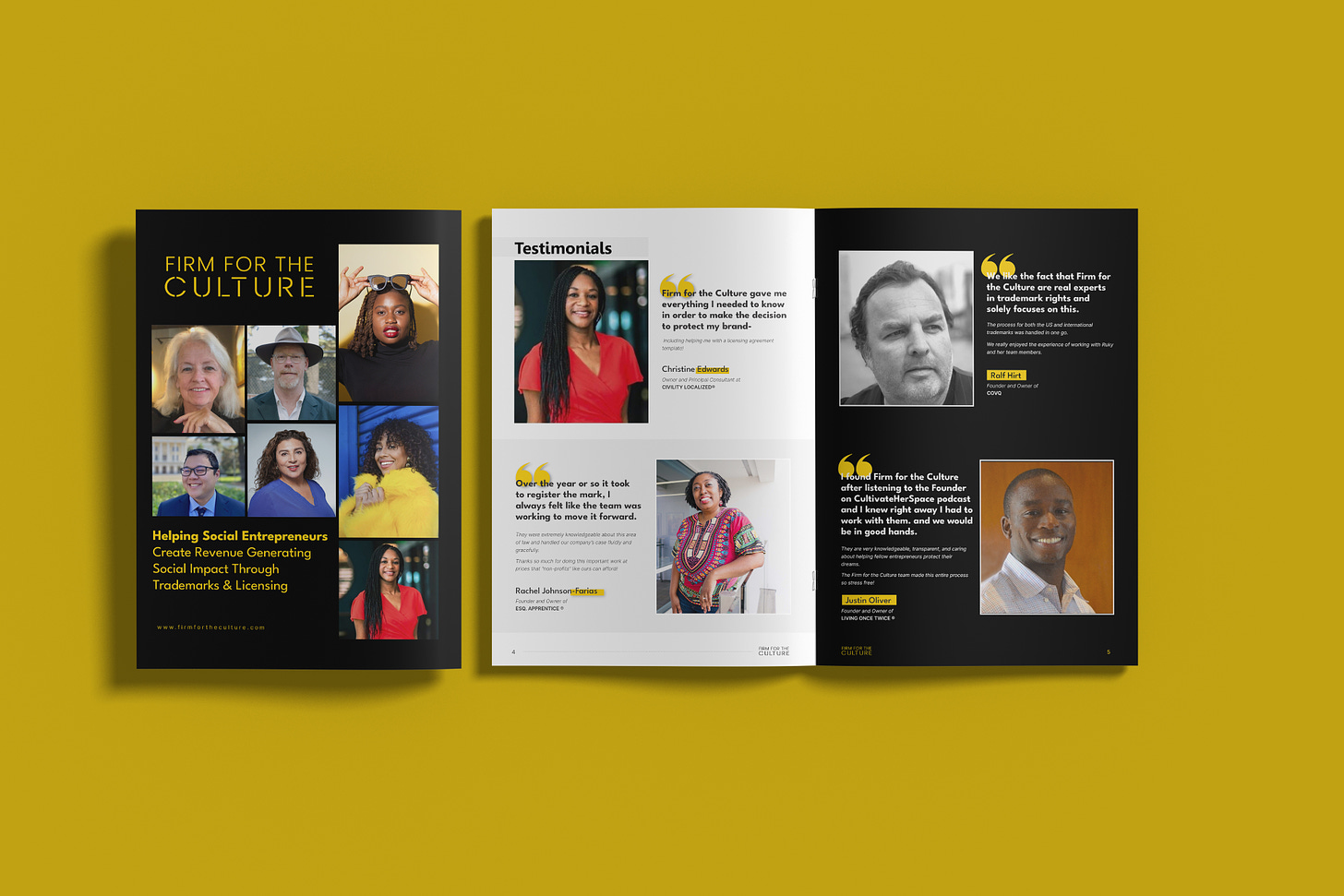A Beginner’s Guide to Trolling Racists
Trolling with Purpose: Using Trademarks to Stand Up Against Racism | I Am What an Intellectual Property Attorney Looks Like.
Hey Fam,
Every now and then, the legal system surprises me. Not because of its brilliance—but because someone dared to get creative with it. Someone dared to play chess while the rest of the world was still playing a broken game of Monopoly.
A few weeks ago, news broke that the historic Black church, Metropolitan AME, now owns the trademark to the name and logo of… the Proud Boys.
Yes, that Proud Boys.
The same extremist group that burned a Black Lives Matter banner at the church’s D.C. location during a 2020 pro-Trump rally.
The same group whose reputation is soaked in intimidation, racism, and violence.
And now?
Legally.
Officially.
And fully empowered.
The court awarded them over $2.8 million in damages and the exclusive rights to the Proud Boys’ name, logos, and merchandising.
You can’t make this up.
But you can learn from it.
Let’s talk about three powerful, often under-discussed ways that trademarks can become one of your most strategic assets—even in the face of hate, harm, or history.
Loving This Post?
Show us some love by adding a “❤️” or commenting below; this will make our hearts sing.
This is the headline everyone loves to repeat, and for good reason.
By gaining control of the Proud Boys’ trademark, Metropolitan AME now has exclusive rights to the name. That means they can stop the original group from using “Proud Boys” on merchandise, digital content, branding—anything that confuses or mimics the trademarked identity.
And if the Proud Boys go rogue and keep using it?
The church can sue.
This is the kind of justice that feels like it belongs in a documentary:
An extremist group burns your sign…
You burn their business plan.
Legally.
Trademarks aren’t just decorative—they are defensive and offensive legal tools. And once registered, they give you the right to enforce, stop, and protect.
Not just for profit.
But for principle
Here’s something most people don’t know: when you own a federal trademark, you don’t have to go it alone.
Once registered with the U.S. Patent and Trademark Office, you can also record your mark with U.S. Customs and Border Protection. That gives the government authority to intercept, seize, and block the importation of infringing goods.
Which means…
If the Proud Boys—or any opportunist looking to monetize hate—tries to ship in boxes of bootleg t-shirts, hats, flags, stickers, or gear using that name?
They can be stopped at the border.
The church doesn’t have to monitor every online store or underground merch seller. They’ve got federal enforcement on their side.
Let that sink in.
What extremist groups couldn’t be stopped from doing by court orders and press conferences, they may now be blocked from doing—by U.S. border agents, acting on behalf of a Black church.
Trademarks have reach.
Trademarks have infrastructure.
Trademarks have teeth.
Now this? This is where the strategic genius truly shines.
And this is the most fun tool you can use to troll racists.
Once you own a trademark, you can license it out and claim ownership over brand that have slign variations and similar commercial impressions. Which means you can give others permission to use it—for a fee, for a cause, or for a purpose.
In other words: the Proud Boys name, now owned by a Black church, can be legally licensed for:
A national “Proud Boys for DEI” campaign
A Kamala Harris fundraiser
A Black Lives Matter art exhibit
A Juneteenth t-shirt line
A book tour, a documentary, a scholarship program
A line of Pride-themed apparel
If it’s licensed under the new ownership, it’s legal.
It’s controlled.
And it’s protected.
This isn’t just trolling. This is tactical narrative reclamation. It’s the transformation of a symbol of hate into a vehicle for funding justice, uplifting truth, and completely rerouting the cultural meaning of a brand.
Trademarks, when used strategically, don’t just protect—they subvert.
They allow you to disrupt the power structure on its own terms, using its own tools.
What the Metropolitan AME Church did wasn’t just smart legal maneuvering.
It was a cultural reset using IP.
It showed us that intellectual property is not just for corporations or influencers or product lines. It’s for storytellers. For protectors. For people willing to weaponize creativity, community, and law—toward something deeper.
Trademarks can be tools of trolling—but also tools of truth.
So the next time someone tells you IP is boring?
Remind them that a Black church can now sue white supremacists for selling their own merch.
And that’s just the beginning.
Need Help Protecting Your Creativity?
If you are unsure—or if you know you need to take action—reach out to us.
We have helped countless founders and creatives safeguard their intellectual property, and we would love to do the same for you.
How can trademarks be used as a powerful tool to challenge racism in today’s society?
I’d love to hear your thoughts—drop a comment or reply with your insights!
If you need further guidance, reach out to me and my team at Firm for the Culture.
We’re here to help you navigate the copyright, trademark, and thought leadership journey.
Can’t wait to help you protect your dynamic impact.
And #ThatsAWrap
The Doors of the Church Firm Are Open
Thanks for reading.
See you next time.














Speaking of teeth...
that's the closest thing I've ever seen to an actual 'Man bites dog' story, Ruky. :-)
Brilliant.